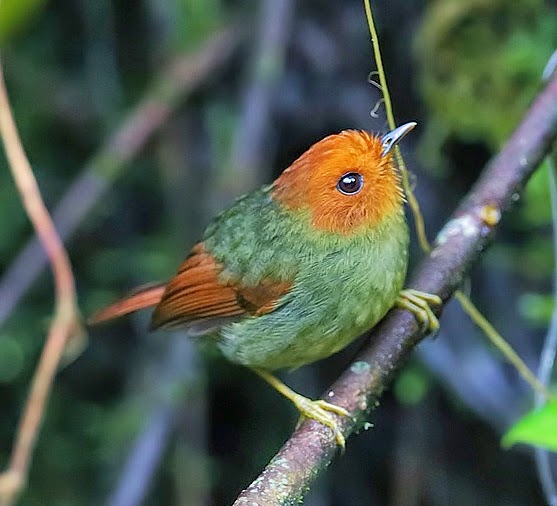 |
| Photo by Nick Athanas (Antpitta) |
Common name:
rufous-headed pygmy-tyrant (en); piolhinho-ruivo (pt); tyranneau à tête rousse (fr); tiranuelo cabecirrojo (es); rotkopftyrann (de)
Taxonomy:
Order Passeriformes
Family Tyrannidae
Range:
This species is found along the Andes mountain chain, from northern Colombia south to central Bolivia.
Size:
These birds are 11 cm long and weigh 7-9 g.
Habitat:
The rufous-headed pygmy-tyrant is mostly found in mountain rainforests, but also uses moist scrublands and occasionally visits lowland rainforests. They are usually present at altitudes of 1.850-3.350 m, but may visit lower areas down to 400 m.
Diet:
They are mainly insectivorous.
Breeding:
These birds breed in October-December. the nest is an oven-shaped structure with side entrances, made of moss and dry leaves and lined with feathers of other bird species, namely barred fruiteaters Pipreola arcuata. It is placed on a small sapling or on a woody vine, up to 1,5 m above the ground, often near a small stream. There the female lays 2 white eggs which are incubated for 25 days. The chicks are fed by both parents but there is no information regarding the length of the fledgling period.
Conservation:
IUCN status – LC (Least Concern)
This species has a large breeding range and is described as fairly common. Deforestation is believed to be causing local extinctions of this species, thus the overall population is suspected to be in decline. However, the rufous-headed pygmy-tyrant is not considered threatened at present.







